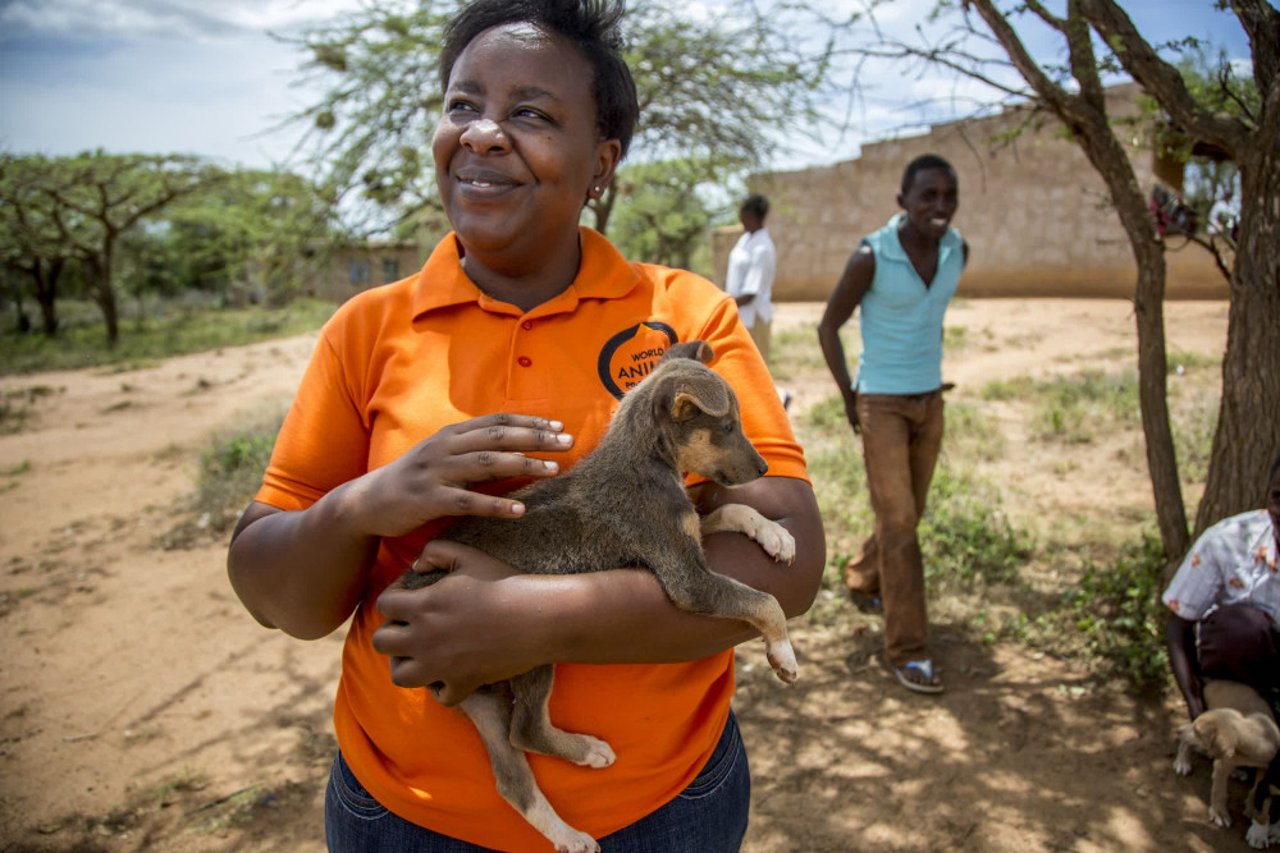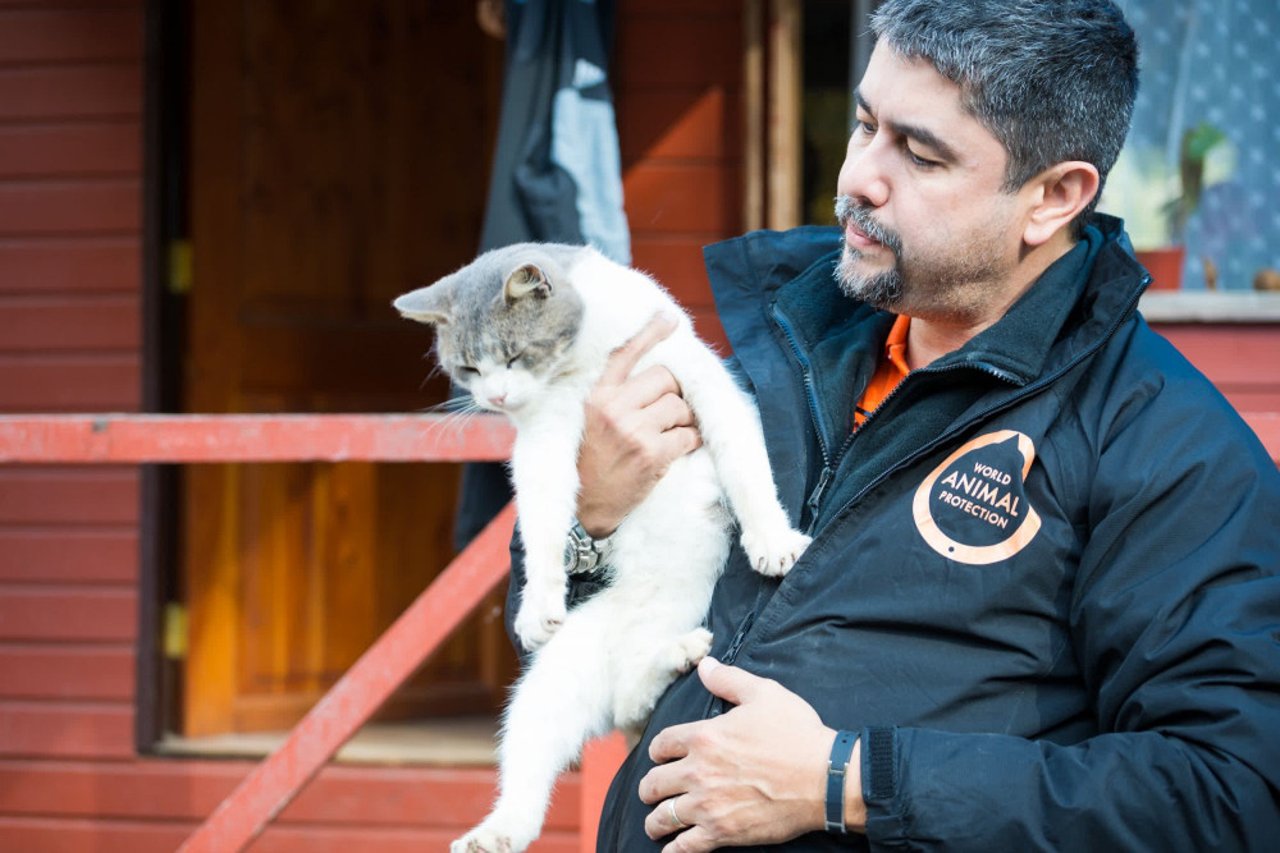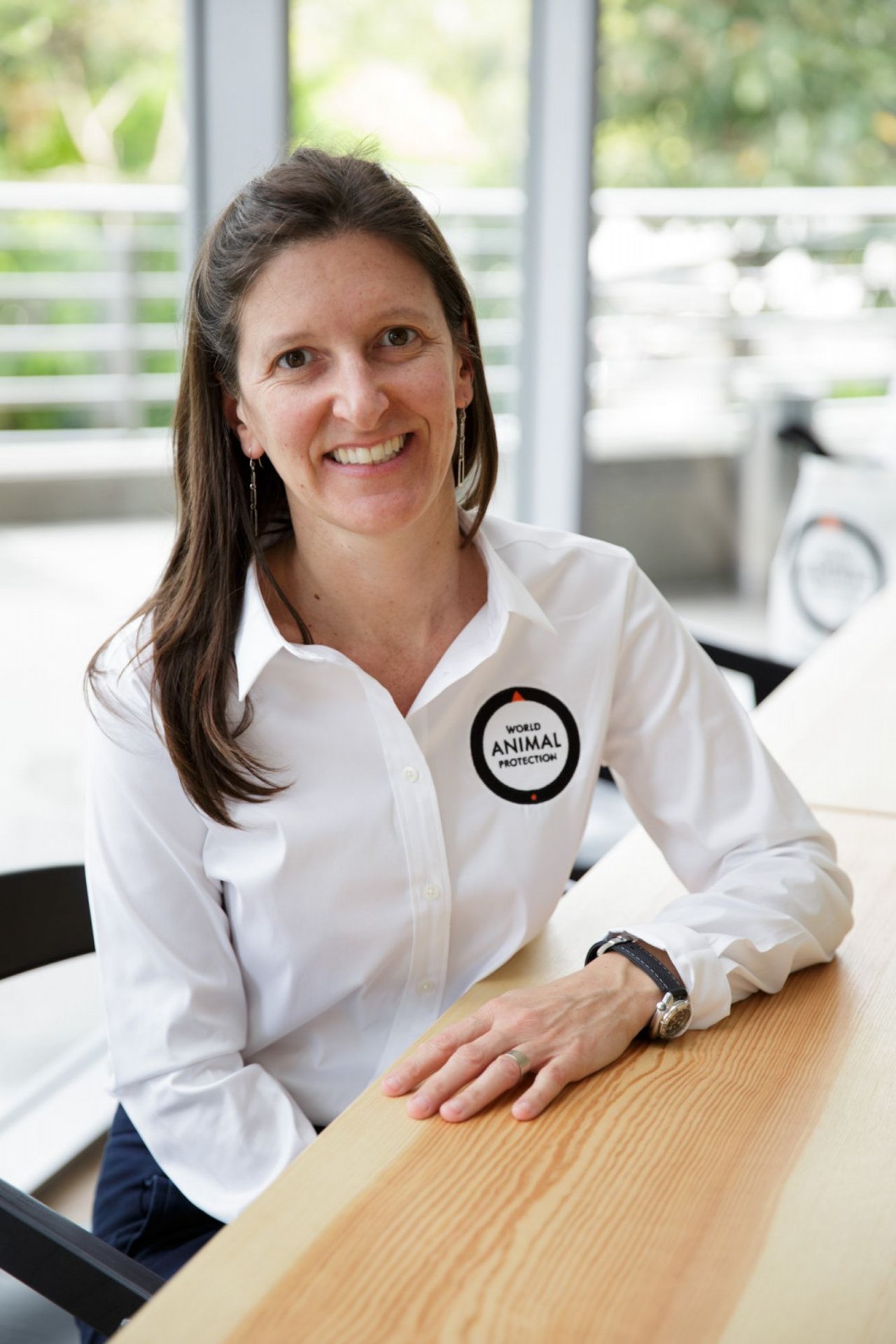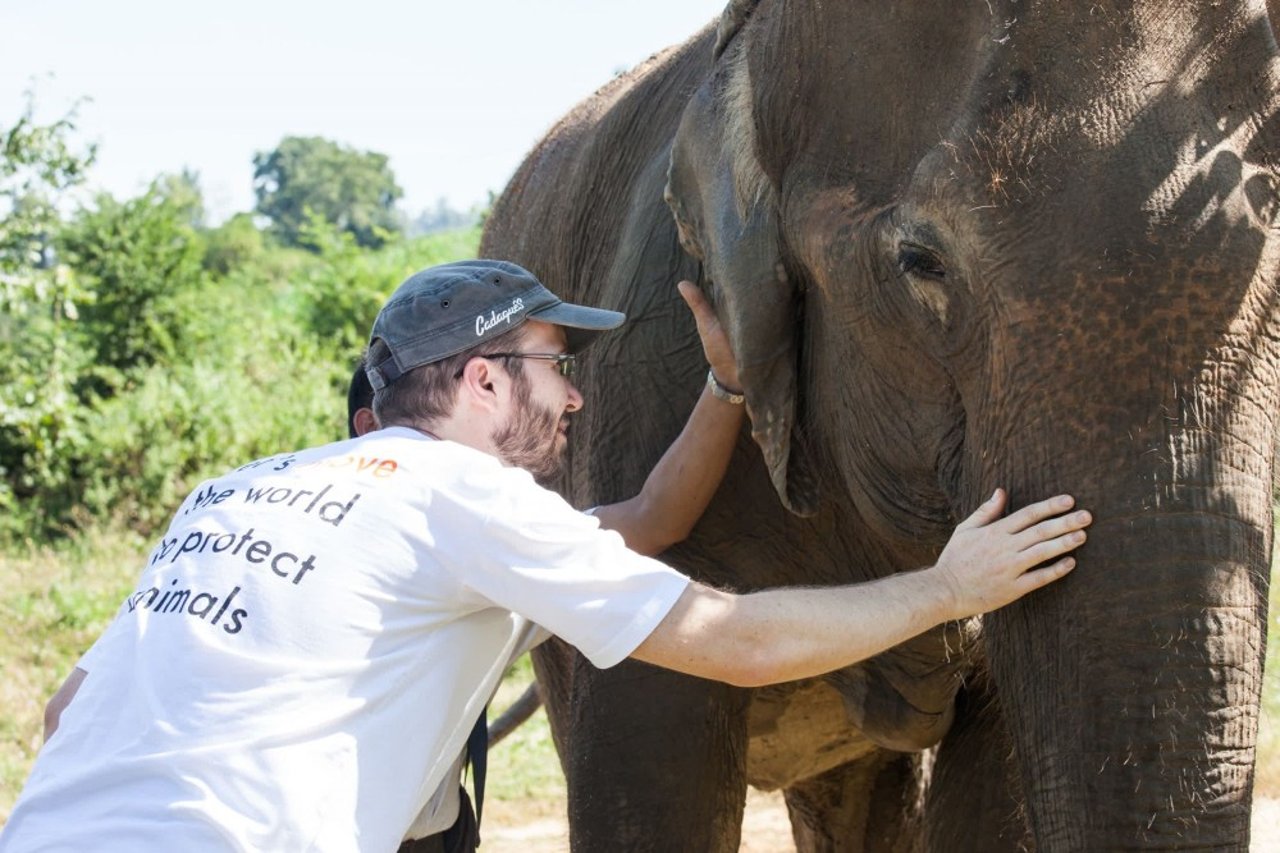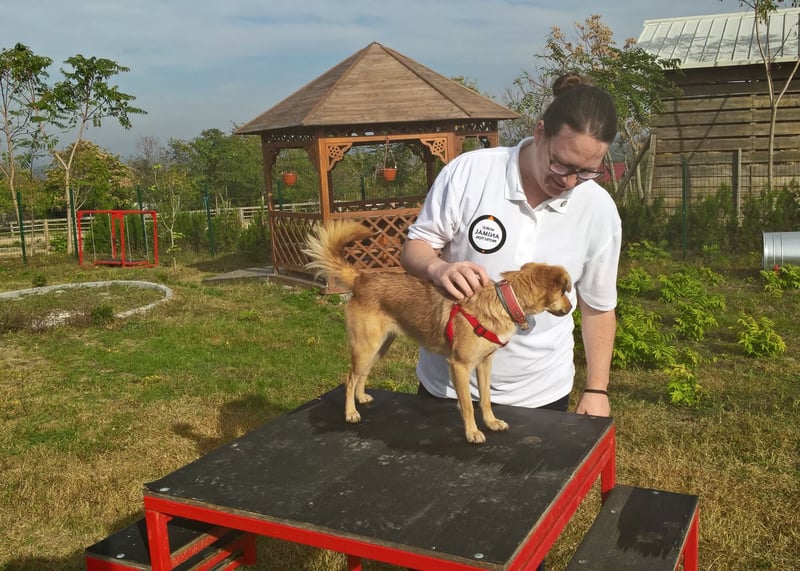
Celebrating World Vet Day
News
World Veterinary Day, on 27 April, was created to highlight the lifesaving work performed by vets around the world.
Each year, a different theme is chosen for World Veterinary Day, with this year’s theme being “Value of Vaccination”.
Whether it’s keeping your own pet’s vaccinations up to date, or the ongoing large scale work we carry out to protect dogs and humans against rabies, vaccination is crucial to ensuring communities remain healthy and safe.
Here’s a quick snapshot of four dedicated vets working across our four program areas: animals in communities, animals in disasters, animals in farming and finally, animals in the wild.
Animals in communities
Emily Mudoga (‘Better Lives for Dogs’ Campaign Manager, Africa) is a vibrant woman whose passion for animals and empathy for people makes her vital in our work to end the inhumane culling of dogs in Africa. She has over 18 years veterinary and program management experience.
How are dogs treated in Africa?
Emily: “In Africa, dogs can carry rabies, so they can be seen as a threat to human life and also to farm animals. There is panic because it is a real problem and kills people. Many families have been touched by rabies.”
Is the ‘Better lives for dogs’ campaign helping to change this?
“Yes. Vaccinating dogs against rabies and educating our people are the only ways to prevent this terrible disease. Right now we are working in the Makueni district in Kenya to make it safer for both people and dogs. We want both to be able to live in harmony.”
Animals in disasters
Dr Juan Carlos Murillo is a Disaster Response Vet who deploys at a moment’s notice from his hub in Central America. He travels to war zones, hurricanes, earthquakes, tsunamis and tornadoes, providing veterinary care to thousands of animals affected by disasters.
Juan is our longest-serving Veterinary Manager.
Why do you believe it is important to help animals?
Juan: “Helping animals makes you a better person, it helps develop kindness, care and love for other living creatures, including human beings.”
Can you tell us about your day to day responsibilities?
“In the field we provide veterinary care, access to food and water and training in animal handling. In some cases we build shelters to prevent animal fatalities in future disasters."
Animals in farming
Kate Blaszak is a Melbourne-based Global Farm Animals Advisor for World Animal Protection.
With her background as a vet, Kate’s technical support makes her vital in our work to improve the lives of farm animals around the world. She has more than 15 years’ animal welfare advocacy and technical experience.
What inspired you to join World Animal Protection?
Kate: “I've been working with World Animal Protection for more than 10 years. I first joined the organisation for the opportunity to work in places where animal welfare was the lowest of priorities, and yet of greatest need. Also, working with so many likeminded people, who remain committed to animal welfare, continues to be inspiring and exciting.”
How does the work you do help move the world to protect animals?
“The authoritative technical support and scientific backing I provide helps us move people around the world to take action for animals; while involving all stakeholders in the farm animal industry. It makes our campaigns realistic, impactful, and encourages support.”
Animals in the wild
Dr Jan Schmidt-Burbach, our Senior Wildlife and Veterinary Advisor, travels to remote parts of the globe to assess the welfare of wild animals and advise on the care of animals in captivity.
After visiting thousands of elephants in captive conditions across Asia, his verdict is clear: the animal tourism industry has to be phased out.
What’s the problem?
Jan: “There’s more than one problem. What I’ve found from visiting more than 200 venues is that these elephants are suffering – because of cruel training, as well as severely inadequate living conditions. Their diets are poor, and they’re usually chained when they’re not performing, denying them any opportunity to socialise naturally with other elephants, which is a key part of their life in the wild.”
What’s the solution?
“We need to work on a sustainable solution to phasing out the industry, which means firstly shifting consumer demand from cruel entertainment activities towards more humane alternatives. We also need to transition conventional elephant camps to elephant-friendly venues. Lastly, we need to ensure that people who are dependent on the elephants’ income are part of that journey towards an elephant-friendly future.”
Dr. Jan Schmidt-Burbach, World Animal Protection's Senior Wildlife and Veterinary Advisor, pictured checking over one of the elephants at BLES sanctuary in Thailand.
Here’s a quick snapshot of four dedicated vets working across our four program areas: animals in communities, animals in disasters, animals in farming and finally, animals in the wild.
